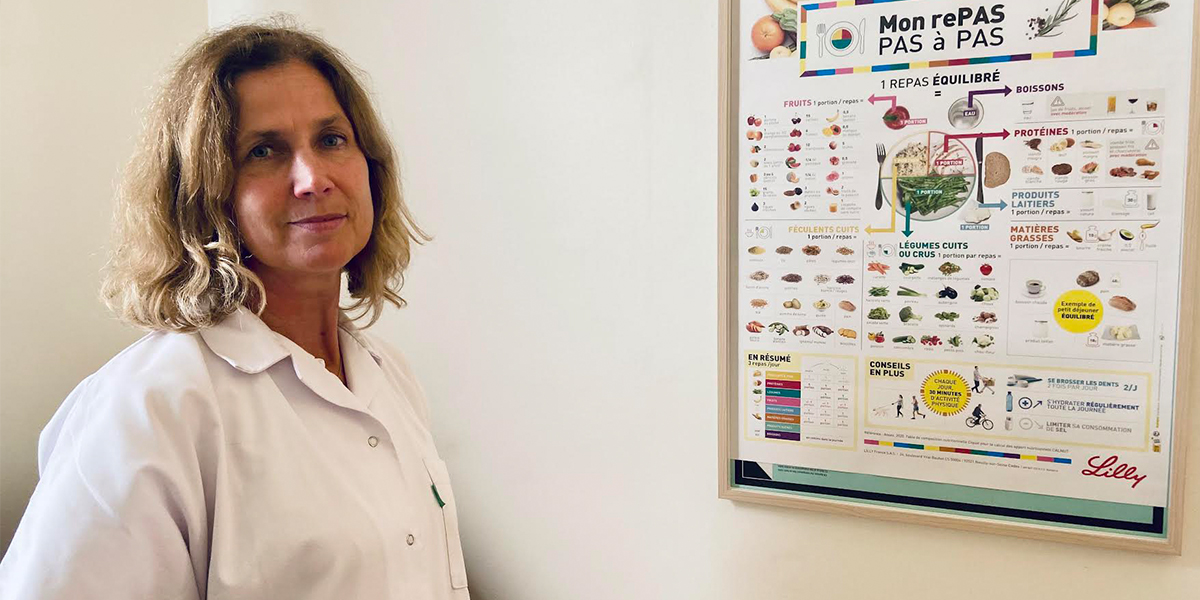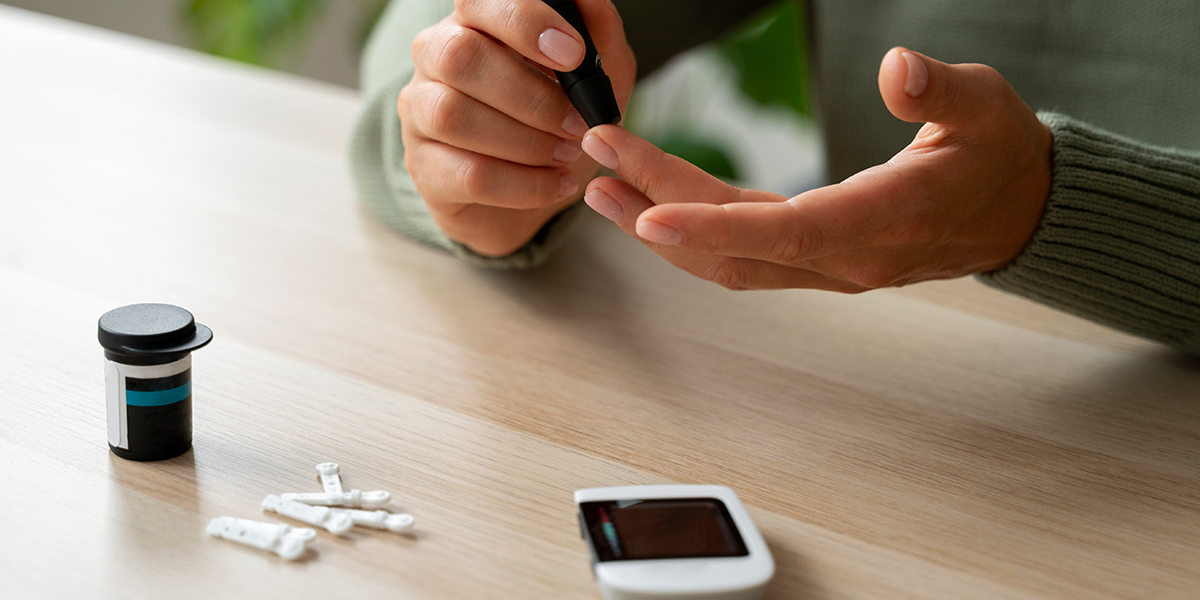Campagnes de sensibilisation
Diabetes: acting early to protect your health
Diabetes affects more and more people, sometimes without them even knowing it. However, a simple screening test and a few everyday habits can make all the difference. Dr Joëlle Sonke, an endocrinologist in Monaco, explains the right habits to adopt today. MonacoSanté keeps you informed.
Type 2 diabetes is the most common form
Diabetes is a chronic metabolic disorder characterised by excess blood sugar, which can have multiple causes. There are several types of diabetes. The two main types are type 1 diabetes, which is autoimmune in origin. But the most common is type 2 diabetes, which is the most common form, affecting around 80% of people with diabetes. “Type 1 diabetes is an autoimmune disease that destroys the cells in the pancreas that produce insulin . Type 2 diabetes does not involve destruction, but insulin is not effective enough”, explains Dr Joëlle Sonke, an endocrinologist in Monaco. Specifically, in type 2 diabetes, patients do produce insulin, but it has difficulty acting on the receptors, which are sometimes less effective or surrounded by fatty tissue. “So for type 1, there is no insulin, and for type 2, the insulin does not work properly”, confirms the specialist. Every day, more and more patients are coming to her surgery. “This disease is affecting more and more people. In France, it affects around 5 to 6% of the population. That's a considerable number”.
Increasingly younger patients
Lifestyle and diet are the two main causes of type 2 diabetes. "An unhealthy lifestyle and genetic predisposition are the combination that causes type 2 diabetes. The problem is that this condition used to mainly affect patients over the age of 40. Today, more and more adolescents, as young as 14, are affected. Admittedly, these are predisposed patients, but what they have in common is poor diet and lack of exercise". However, the endocrinologist remains positive. “Obviously, it's not good news to have type 2 diabetes at the age of 14. Although this predisposition remains, an excellent lifestyle and weight loss can help to completely normalise the condition”. The warning signs are often weight loss , unquenchable thirst and increased urine volume, the medical term for which is polyuria.
Symptoms that are sometimes invisible
Some patients do not show any symptoms. “What worries us are type 2 diabetics who are unaware of their condition. Their blood glucose level levels rise gradually. Sometimes they normalise, then rise again. This slow progression allows the body to adapt, which masks the disease. That's where the danger lies”, says the endocrinologist. The consequences can be serious, with damage to the body's small and large blood vessels. This damage can cause disorders in the retina, kidneys, and nerve fibres, as well as heart problems. "At the age of 50, people who develop diabetes often also have slightly high blood pressure and cholesterol. All of this forms an explosive cocktail, and complications arise quickly", she adds. But if the diagnosis is made early and the treatment is appropriate, these complications can be avoided. In the case of type 2 diabetes that does not require insulin, being diabetic does not necessarily mean taking medication for life. “However, it does require a healthy lifestyle, a balanced diet and physical activity”, she emphasises. Contrary to popular belief, no foods are off limits. “You can eat bread or pasta. You can even eat something very sweet from time to time if you compensate with physical activity. The goal is to balance your diabetes”.
Free screening day on 14 November
The diagnosis is made when fasting blood glucose levels are equal to or greater than 1.26 g/l on two occasions one month apart. Medical follow-up can be carried out by a specialist who will see the patient two to three times a year. "Screening remains essential in order to prevent diabetes as early as possible and treat it. The earlier it is detected, the better it can be controlled, and the fewer complications will arise, if any", explains Dr Sonke. The specialist recommends capillary blood glucose screening in cases of family history or after the age of 40. Every 14 November, World Diabetes Day raises awareness of this disease in order to encourage screening. In the Principality, the Monaco Red Cross, in partnership with Monaco City Hall, the Prince's Government and the Princess Grace Hospital, is organising a free screening day on the Fontvieille esplanade from 9 am to 5 pm on that day, with no appointment necessary. Volunteer nurses from the Monaco Red Cross will be on hand to carry out the tests.
 Dr Joëlle Sonke, endocrinologist in Monaco
Dr Joëlle Sonke, endocrinologist in Monaco

